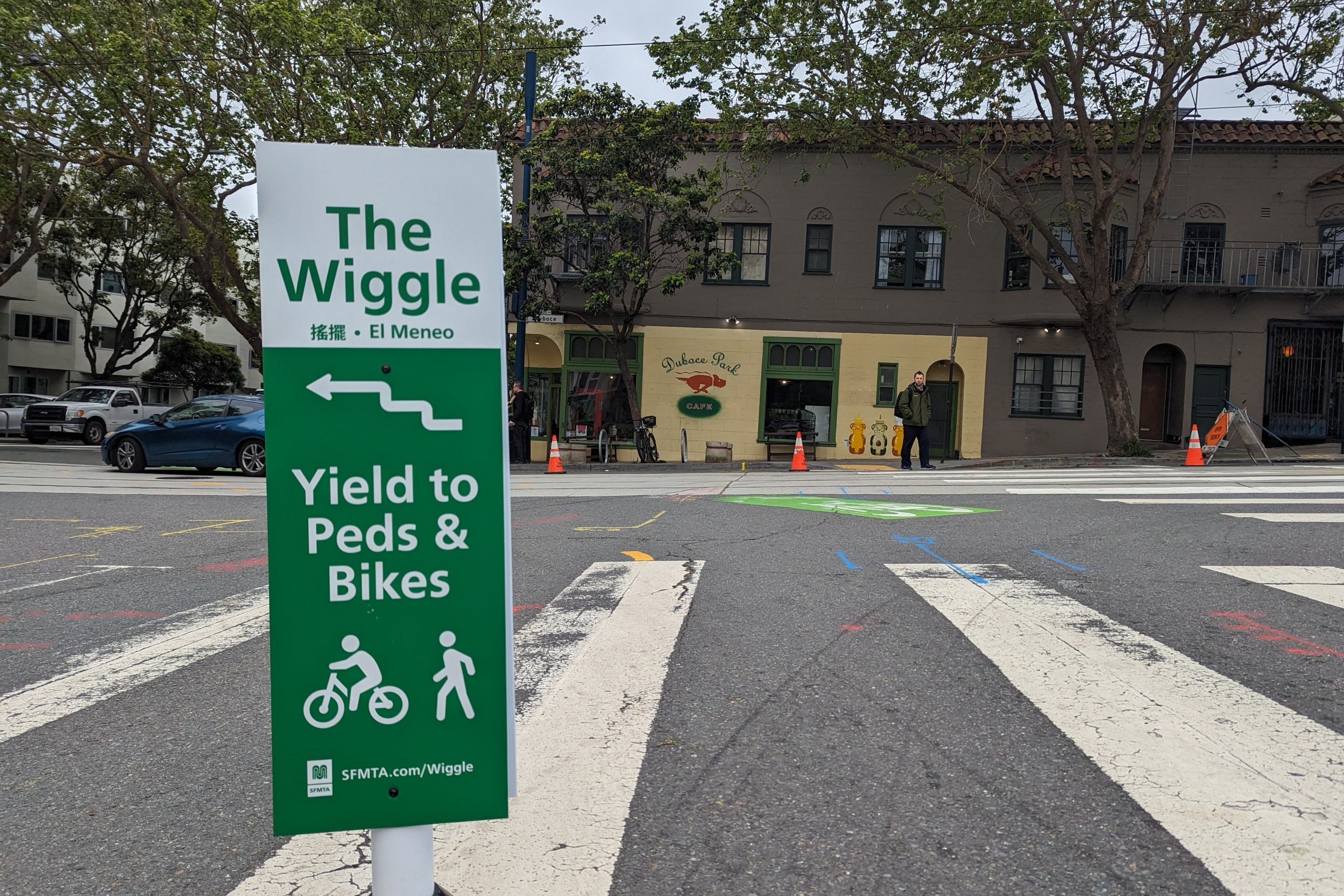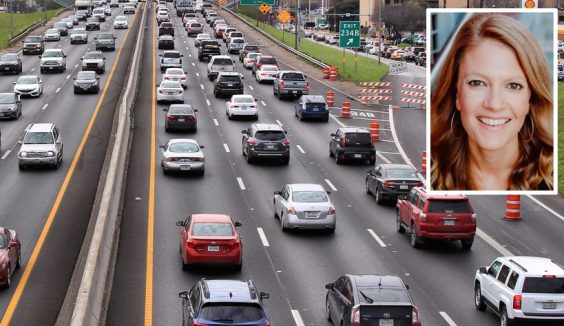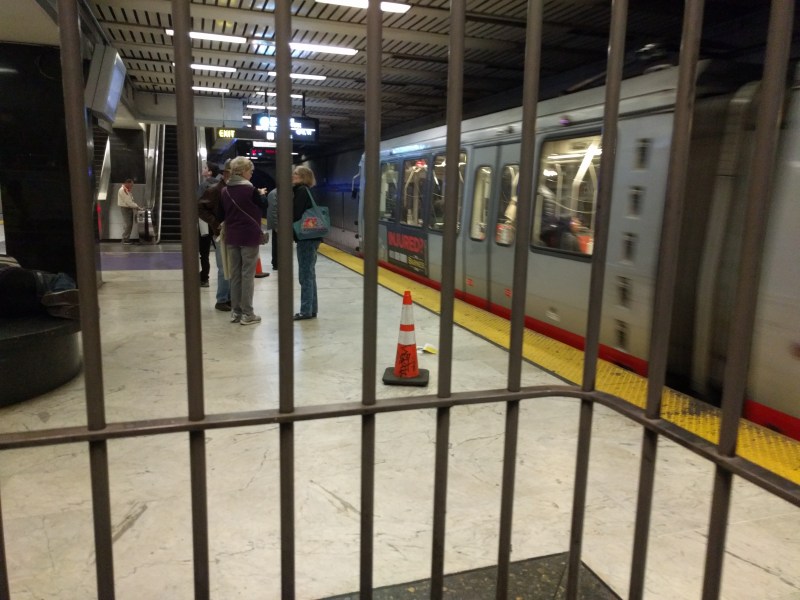Planners Expect Public-Private Partnership to Lower Doyle Drive Costs
2:23 PM PST on November 15, 2010
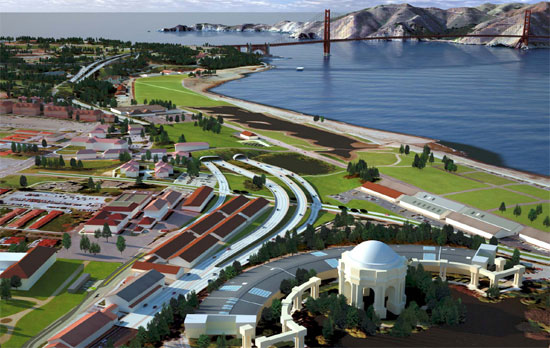
The Presidio Parkway/Doyle Drive project will move into the second phase of construction early next year, but planners are already touting a unique public-private partnership, or P3 in their shorthand, which they say forges a new model for delivering massive infrastructure projects for less money and greater financial oversight.
Assuming all the necessary approvals are in place by the end of the year, the Presidio Parkway P3 contract will be awarded to a consortium called Golden Link Partners and will rely on significant foreign investment from two European companies.
As SFCTA executive director Jose Luis Moscovich explained to Streetsblog recently, the P3 is the first of its kind in California and resembles P3s that have worked well in Canada and Europe for years.
"We are well on our way to creating, through the Doyle Drive project, essentially a new paradigm for delivering these big, monster projects in the state," said Moscovich. "It's a paradigm where you take into account the entire life-cycle of the project, the design, the construction, the operations and the maintenance. We're ensuring the project will be well-maintained and there will not be a gap in the maintenance commitment to the project."
The overall P3 phase of construction is expected to cost nearly $500 million, but because of the P3 financial agreement in place, Caltrans will only have to pay $173 million up front. The remaining money will be paid incrementally as availability payments and will have numerous strings attached mandating that Golden Link Partners maintain and operate the facility as a concessionaire for thirty years.
Assuming Golden Link meets its obligations each year, it will receive $28.5 million, a number that came in 20 percent below the state's authorized expenditure plan for the project. If Golden Link doesn't meet its required maintenance and facility repairs, including removal of debris from the roadway or clean-up after traffic incidents, the state could withhold availability payments, even up to the total $28.5 million. For Golden Link, the investment they make in the facility is expected to provide an good return on investment, or up to 10 percent, according to Moscovich.
The availability payments will come from Caltrans' highway funding and Moscovich cautioned against simply multiplying the yearly payment by thirty years, given that the net present value of the investment is only $230 million. Inflation will actually work to the taxpayer's benefit as the availability payments will remain unchanged over the thirty-year timeline.
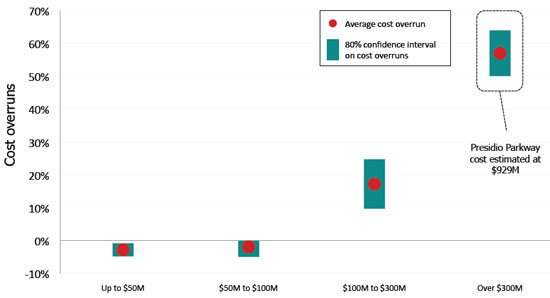
Another benefit to the contract, according to Moscovich, is the cost overrun factor. According to Caltrans data, transportation projects in California that cost up to $100 million generally come out at or slightly under budget. Projects that cost $100-300 million jump to 20 percent over budget, on average, and projects that cost over $300 million come in 60 percent over budget. Based on experience with large P3 transportation projects in Canada and Europe, cost overruns are under 10 percent.
The following graph shows the expected costs of the P3 construction phase for Presidio Parkway versus the cost of doing business through a standard design, bid, build project. While the actual construction costs are fairly close, the traditional method leads to greater risk and overruns, according to estimates prepared by the SFCTA and Caltrans:
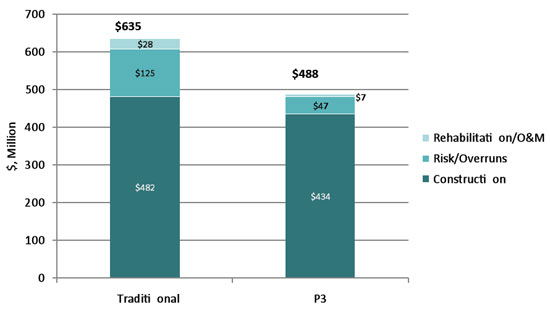
After the P3 contract is up, Golden Link will return control of the facility to Caltrans, at which point planners expect the continued maintenance and operations investment will defray long-term rehabilitation costs and ultimately lead to an increased state-of-good repair for the facility.
The P3 arrangement was made possible by Governor Arnold Schwarzenegger's signing of the bill SBX2 4 in 2009 and the Presidio Parkway project is the first real test of the financial scenario in California and the second in the nation behind a stretch of I-595 near Ft. Lauderdale, Florida, according to the American Association of State Highway and Transportation Officials (AASHTO).
While Moscovich said P3s were likely not a good way to go with smaller projects, he suggested future large transit capital expansions should seriously consider the new model for project delivery.
Stay in touch
Sign up for our free newsletter
More from Streetsblog San Francisco
Independent Safety Advocates Beef up the Wiggle
Signs and soft-hit posts installed by advocates make the Wiggle bike route calmer and safer for cyclists and pedestrians
